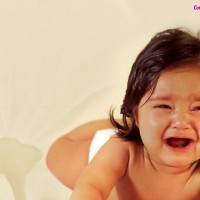Pais sabem que seu filho sofreu traumatismo dentário? Recente publicação do PPGODONTO

Dent Traumatol. 2012 Oct 16. doi: 10.1111/edt.12005. [Epub ahead of print]
Parents’ recognition of dental trauma in their children.
Ramos-Jorge ML, Ramos-Jorge J, Mota-Veloso I, Oliva KJ, Zarzar PM, Marques LS.
Department of Pediatric Dentistry and Orthodontics, Federal University of Vales
do Jequitinhonha e Mucuri, Diamantina, Brazil.
OBJECTIVES: The aim of the present study was to assess parents’ recognition of
dental trauma in their children. METHODS: A cross-sectional study was conducted
in Belo Horizonte, Brazil, with 519 randomly selected children between 1 and
3 years of age. The parents answered questions on the occurrence of previous
dental trauma, caregiver’s schooling and the impact of dental trauma on
activities and quality of life of the children. The children were also clinically
examined for presence of dental trauma. Descriptive analysis, the chi-squared
test, Mann-Whitney test and Poisson regression analysis were performed. The
calculation of effect size was used to test the clinical significance of the
findings. RESULTS: A total of 41.2% (n = 214) of the children had at least one
tooth with dental trauma. Among the parents of the children with dental trauma,
42.5% (n = 91) had not recognized the trauma. Mean caregiver’s schooling was
8.9 ± 3.3 years of study. The schooling of caregivers who were unaware of the
dental trauma was lower (mean: 5.3 ± 2.5 years of study) than that of those who
were aware of the trauma (10.4 ± 2.1 years of study; P < 0.001). The recognition
of dental trauma was more prevalent among parents of children over 24 months of
age (PR: 3.5; 95% CI: 2.2-5.6), those whose children experienced an impact of
oral health status on quality of life (PR: 1.2; 95% CI: 1.1-1.4) and those with a
higher level of schooling (PR: 1.2; 95% CI: 1.1-1.2). CONCLUSION: A large portion
of parents do not recognize the occurrence of dental trauma in their toddlers.
The age of the child, impact of oral health status on quality of life and
caregiver’s schooling were directly associated with parents’ recognition of
dental trauma in children aged 12 to 36 months








